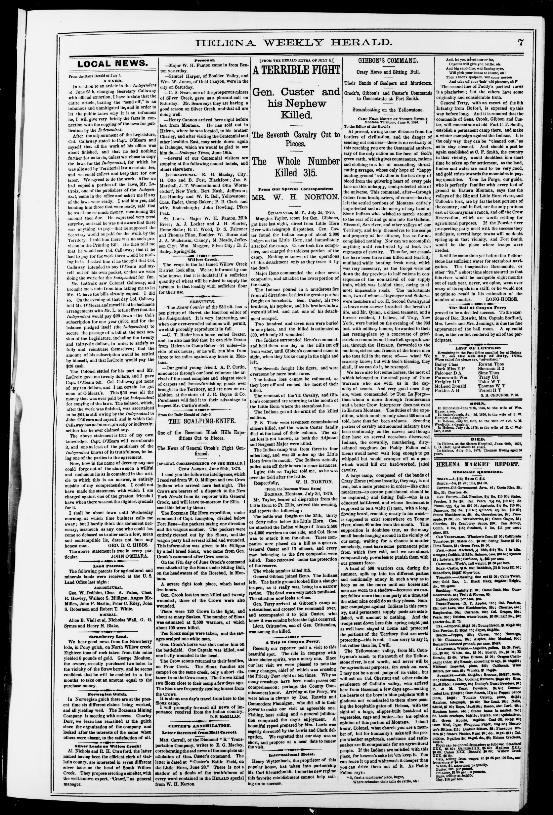On July 4, 1876, as Americans celebrated the nation’s centennial, rumors of a bloody clash on the frontier began trickling out. Sketchy stories, long on hearsay but short on accurate details, appeared that day in a western paper: George Armstrong Custer, a hero during the Civil War and a minor celebrity in the years since, had, along with hundreds of his subordinates in the Seventh Cavalry, been slaughtered by “Indians” on the banks of the Little Bighorn River in Montana Territory. The first report understated the carnage: “The situation now looks serious.”
Not yet knit together by a reliable communications network, the United States, at moments of crisis, felt like a much larger country in 1876 than it does today. The engagement had actually taken place more than a week earlier, on June 25. Two days after that, Alfred Terry, Custer’s commanding officer, sent a report back east.

But the telegraph line between Montana and Chicago was down, and so the Army high command, visiting the World’s Fair in Philadelphia, only learned of the debacle from a newspaper account just before Terry’s dispatch finally arrived on July 6.
The next day, The New York Times ran an account of the “Little Horn
Massacre” as its lead article and devoted most of its front page to
stories of the bloodletting. Describing a “wholesale slaughter,” The Times reported that William Tecumseh Sherman and Phil Sheridan, principal architects of the Plains Indian Wars, laid the blame for the loss at the feet of the slain Custer.








Custer was absolutely at fault. Whatever you think about the oppression of the Plains peoples, Little Bighorn was a monumental self-inflicted defeat from a purely tactical standpoint, by an all around incompetent commander. The cult of Custer was almost entirely the result of efforts by his wife.
Custer wanted to be President, and felt a victory would help that cause. Did not go well…
Fantastic historical fictional account of this was Little Big Man, a very underrated movie. Brilliant. Humorous, dramatic, serious, introspective. Directed by Arthur Penn, who also directed The Miracle Worker and Bonnie and Clyde. Hoffman was great as usual, as were Chief Dan George (Academy Award Nomination), Faye Dunaway and Martin Balsam.
News travels much more quickly now than it did then, but sometimes it doesn’t seem to be any more accurate.
From the article next to the one about General Custer…
Seems like there was a lot of folks that didn’t understand the ways of the west. Agriculture, no, but it’s worth to the American people is beyond price.